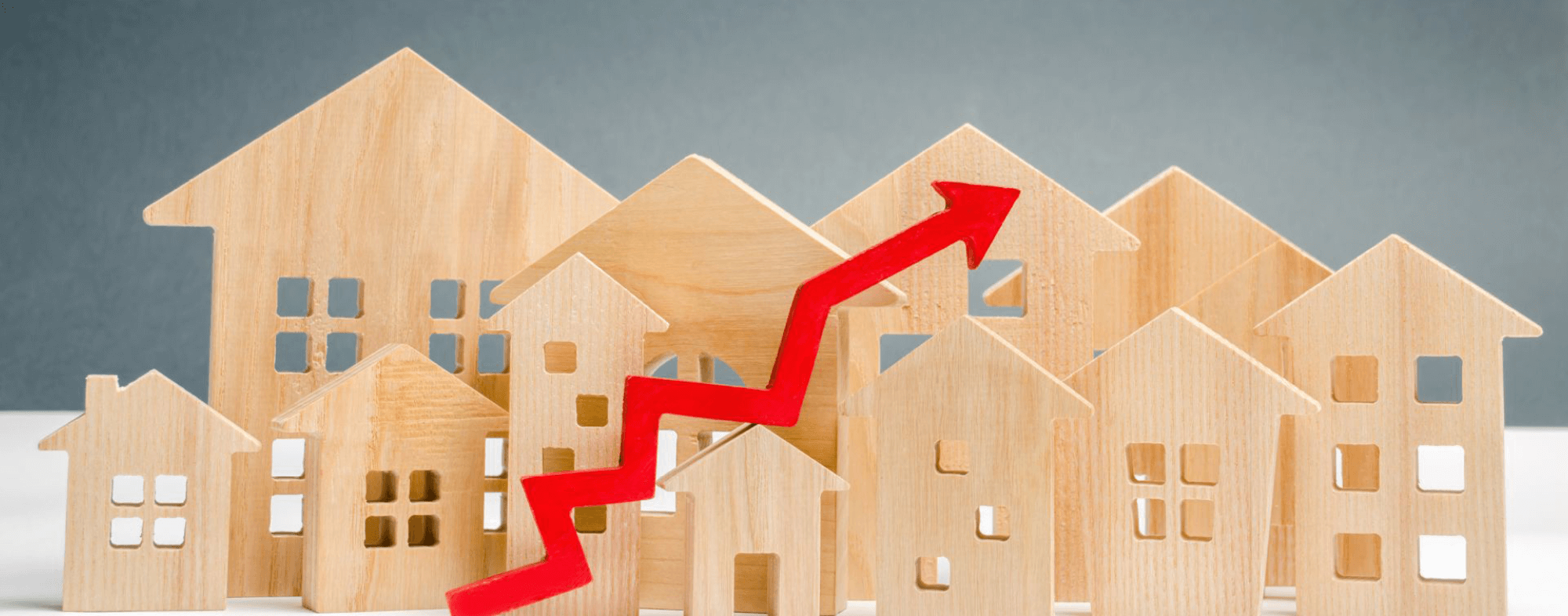Interest Rate Rises – What Do They Mean for Property?
Blog

There has been considerable attention to the Reserve Bank of Australia official interest rate rises, increasing from the COVID-19 pandemic economic stimulus level of just 0.1% to 1.85% in only four months, on the backdrop of a 20+ year high inflation rate of 6.1%, fuelled by a combination of domestic and international factors.
The impact of any change in economic conditions varies depending on the sector. Whilst the cost of finance will increase across the entire economy and property market, the consequences will vary by sector and location. Unemployment is also at a near 50-year low of 3.5% and our economy is still growing. Whilst money and goods are more expensive, the impact is less severe whilst we have low unemployment and strong economy. Interest rates have also been artificially low, and sooner or later they needed to return to normal levels – that is what is happening now.
Residential Markets
Broadly, the residential property market, which is more sensitive to interest rate trends, is expected to soften during 2022 and into 2023. Market data already indicates a softening in median house prices in Melbourne, Canberra and Sydney, and a reversal of previously strong capital growth in other capital cities. Something to monitor may be whether rising fuel prices start to impact buyer sentiment for fringe or commuter locations which do not have access to public transport.
In regional areas however, there are other factors at play. Following COVID-19 there have been some permanent work life changes with the intersection of modern technology and greater flexibility in work practices. It is now a reality that some jobs - which were previously performed in our commerce capitals - can be performed from almost anywhere in Australia.
Commercial Markets
In commercial markets, there has been a notable rise in the 10-year bond rate from around 1% in 2020 to 3.4% in mid-2022. Property yields are expected to soften, particularly in some sectors, such as industrial, where yields have been at historically low levels.
A flipside to rising inflation is considerable CPI rental growth for some commercial landlords. Rental growth alone will not entirely offset even the modest rises in capitalisation rates/yields. The math is confronting; just a 0.5% rise on a 4% yield results in an impact on value of -11.1%, but a 6.1% CPI rent review softens the impact to -5.7%. Other factors such as lease renewals, vacancies, the weighted average lease expiry (WALE), refurbishment, further development options or change of use are all influential in commercial property.
What is clearly emerging is an anticipated fall in sales volumes. In a softening market, vendors who don’t have to sell may withdraw from the market. It can also take time for vendors to adjust their price expectations to align with purchasers’ offers.
If you are a vendor, and you need to sell, be conscious of possible further softening over the next 6-12 months. It might be time to get some expert valuation advice to make sure your property is accurately priced.
Opteon is carefully monitoring the markets and our Valuers have been updated on emerging trends. We continue to analyse recent sales activity and transactions across Australia, as well as monitor future economic data to support your property decisions.
Know Your Position – How Can Opteon Help?
Whether in a stable position or at risk, determine your equity position by understanding your property value.
Property Owners / Buyers
Whether you are looking to refinance or looking for opportunities in a cooling market over the next 6-12 months with less competition from other buyers, Opteon can assist in good due diligence by providing an independent market valuation prepared by an experienced, local, and Certified Practising Valuer.
Lenders
If you have clients in financial stress, Opteon can give impartial advice on the market value, suggestions to maximise realisable value, or recommendations on marketing methods or local agent contacts, to help mitigate the circumstances.
Self-Managed Superannuation Fund (SMSF) Properties
If you have a SMSF, as you start to contemplate preparing information for your financial accounts for the 2021-22 financial year, we recommend you obtain a valuation for financial reporting purposes at least every three years. It is also cost effective to update rental and insurance values at the same time. If you haven’t had your SMSF property valued for a few years, auditors and the Australian Tax Office may require a formal valuation, not just an appraisal – your local Opteon valuer can be of service.
Investors/Developers
It is a difficult time for some builders. If you have building stock on your books, contemplate revaluations to understand your asset/equity position and finance options to support cashflow to finish projects and sell stock on. For building projects in the difficult position of being partly finished, a valuation “as is” and “as if complete” will help make informed decisions about whether the cost to complete makes financial sense or whether other strategies need to be contemplated.
Your Valuation Experts
Our Valuations experts are fully-qualified with in-depth knowledge of the market, supporting customers make informed decisions on their real estate assets.
This material is produced by Opteon Property Group Pty Ltd. It is intended to provide general information in summary form on valuation related topics, current at the time of first publication. The contents do not constitute advice and should not be relied upon as such. Formal advice should be sought in particular matters. Opteon’s valuers are qualified, experienced and certified to provide market value valuations of your property. Opteon does not provide accounting, specialist tax or financial advice. Liability limited by a scheme approved under Professional Standards Legislation.







